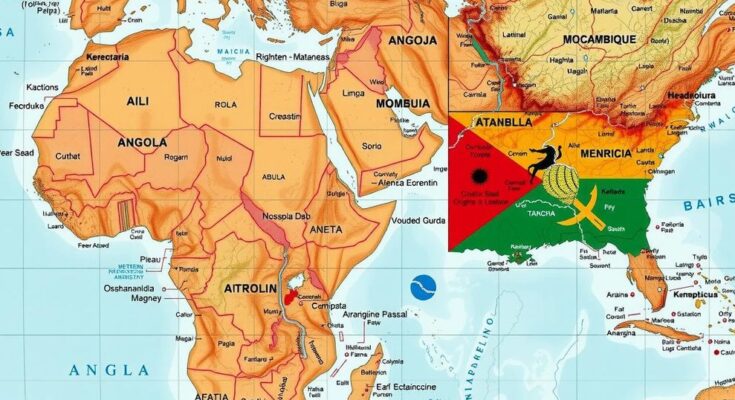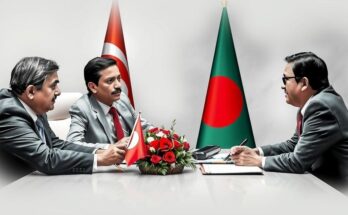The article discusses the West’s failure to uphold democratic principles in Angola and Mozambique, highlighting how strategic and economic interests take precedence over the support of legitimate governance. With the US engaging with regimes accused of electoral malpractice, the implications for stability and the perception of Western influence in Africa are significant, raising questions about the credibility of these partnerships.
The recent diplomatic engagement by the United States with Angola’s President João Lourenço raises significant concerns regarding Western priorities in Africa. While President Biden’s outreach highlights a push for infrastructure investment and strategic alliances against Chinese influence, it simultaneously highlights a troubling acceptance of undemocratic regimes. Mozambique’s electoral irregularities illustrate a broader pattern, wherein Western powers ignore blatant election fraud in favor of stability and economic interests, undermining the very democratic principles they purport to support.
Lourenço, recognized by the West despite his government’s dubious electoral legitimacy, seems emboldened, calling for solutions in Mozambique amid an electoral crisis that favored the ruling Frelimo party amid blatant irregularities. The situation has led to widespread opposition protests and an ineffective government increasingly reliant on external military assistance, exemplifying a weakening state capacity. This reflects a broader disillusionment with governance across the continent where political regimes are sustained through coercive tactics instead of genuine democratic principles.
This continual support for compromised regimes reflects a troubling trend in Western foreign policy, prioritizing economic interests over democratic accountability. The West appears willing to maintain partnerships with these governments as long as they can secure access to resources. The lack of a steadfast commitment to democratic norms will likely exacerbate instability, drawing the ire of citizens subjected to repressive governance. The article suggests that the West’s strategic miscalculations and refusal to advocate for legitimate electoral processes are weakening its influence in Africa, prompting a reassessment of its role on the continent.
The relationship between Western nations and Africa has been increasingly characterized by strategic interests over principled commitments to democracy. In Angola and Mozambique, the United States has engaged with ruling governments implicated in electoral fraud, showcasing a shift from promoting democratic norms towards prioritizing stability and resource access. This trend presents a worrying divergence from historical practices where democratic ideals were unequivocally upheld. As countries grapple with governance issues, the reliance on Western support underscores the need for accountability in democratic processes, impacting the broader geopolitical landscape.
Ultimately, the West’s failure to prioritize democracy in its dealings with countries like Angola and Mozambique reveals a deep inconsistency in its foreign policy. While economic interests drive engagement, the neglect of democratic integrity ultimately destabilizes regions and fosters resentment among populations. A renewed commitment to supporting legitimate democratic processes must be the focus of the international community if it is to maintain credibility and influence within Africa. Failure to do so risks further alienation of ordinary citizens and the entrenchment of undemocratic regimes.
Original Source: www.thebrenthurstfoundation.org



